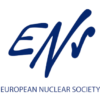National Working Group Recommends Construction Of NPPs In Estonia
The Nuclear Energy Working Group (NEPIO) recommends the construction of a nuclear power plant in Estonia, with a Small Modular Reactor (SMR) considered the most suitable solution.
The introduction of nuclear energy would contribute to the country’s climate objectives, supporting the security of supply and stability of the energy system, the NEPIO final report found.
The working group believes that with timely planning, sufficient funding, and political and public support, the introduction of nuclear energy in Estonia is feasible, the press service of the Climate Ministry said.
The formation of NEPIO was formally approved by the Estonian government in April 2021, tasking it with analysing the possibility of introducing nuclear energy in Estonia.
Over the past two and a half years, the national nuclear working group has been analysing the potential of SMRs, following the International Atomic Energy Agency’s (IAEA) roadmap for the development of national nuclear infrastructure, which identifies 19 key issues for the deployment of nuclear energy.
Antti Tooming, deputy undersecretary of the Ministry of Climate and head of the working group, said nuclear energy has proven its worth in many countries. However, Mr Tooming said that without prior experience, introducing nuclear power will take years of preparation and 9 to 11 years before the first unit is online. If nuclear is chosen, Estonia should prepare the legislative framework, acquire capabilities and begin choosing possible sites, he said.
The possible launch of a nuclear power programme in Estonia will be discussed by the Government and the parliament (Riigikogu) in the first months of 2024.
Read the full article on ERR.
So far, Estonia has had a particularly polluting energy mix based on oil shale, of which the country is particularly rich.
In 2018, oil shale accounted for 73% of the total primary energy supply and 76% of Estonian electricity generation, making Estonia the country with the highest carbon intensity among all International Energy Agency (IEA) members.
The new Estonian government in early 2021 announced plans to stop producing shale oil in 2035 and to reach carbon neutrality by 2050, considering also nuclear energy among the low-carbon solutions.
A government poll published in March 2023 found that 75% of Estonians support the building of a nuclear power plant in the Baltic country. Energy security and cheaper electricity were the two main reasons behind support for nuclear power.
In the meantime, last February the Estonian nuclear company Fermi Energia announced the selection of GE Hitachi’s BWRX-300 as the technology for the first planned Small Modular Reactor (SMR) in Estonia.
